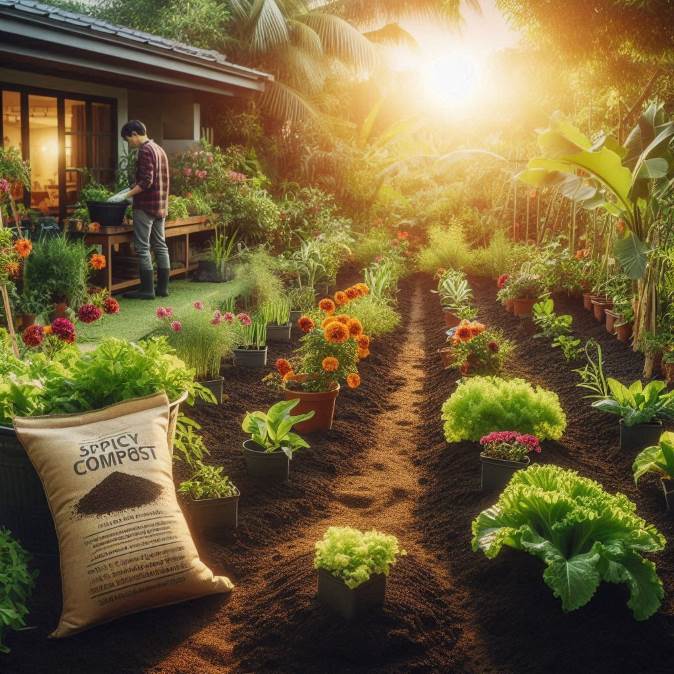Sustainable Gardening Trends: The Rise of Organic Compost Solutions in Connecticut

Organic composting is transforming gardens across Connecticut. More homeowners, schools, and community groups are embracing sustainable methods to enrich their soil and reduce waste. Learning about the environmental impact of chemical fertilizers and the benefits of organic alternatives fuels this shift. One standout example of sustainable composting in the region is Thrive Farm’s Spicy Compost (https://thrive-farm.com/spicy-compost/), which has gained recognition for its nutrient-rich, eco-friendly approach to soil enhancement.
Why Organic Composting Is Gaining Popularity
The need for healthier soil and a cleaner environment drives the movement toward organic composting. Using traditional fertilizers can degrade soil quality over the years because traditional fertilizers contain synthetic chemicals that are harmful to the environment.
On the other hand, organic compost enriches soil naturally, improving its structure, moisture retention, and nutrient content.
Connecticut’s commitment to sustainable agriculture is evident in the increasing number of composting initiatives. Farmers’ markets, local farms, and even urban gardeners are embracing composting to produce healthier crops while reducing landfill waste. With organic waste making up a significant portion of household trash, composting provides an effective way to repurpose food scraps and yard debris.
Thrive Farm’s Spicy Compost: A Model for Sustainability
Thrive Farm has emerged as a leader in Connecticut’s organic composting scene. Their Spicy Compost stands out due to its unique natural ingredient blend that promotes microbial activity and soil health. Unlike traditional compost, which can sometimes be slow to break down, this specialized mix accelerates decomposition, making nutrients more readily available to plants.
What makes Spicy Compost particularly appealing is its balance of carbon and nitrogen sources, which ensures an optimal environment for soil microbes. This results in richer soil, healthier plants, and reduced dependence on synthetic fertilizers. Many gardeners report that using this compost improves plant growth and enhances crop yields.
The Role of Education in Sustainable Gardening
Schools and universities are playing a crucial role in promoting sustainable gardening practices. Several Connecticut institutions have introduced composting programs to teach students about waste reduction and soil health. Community gardens linked to educational programs provide hands-on experience, showing young learners how composting contributes to a sustainable food system.
Workshops and outreach programs are also gaining traction. Local gardening clubs and environmental organizations frequently hold events to educate the public on composting techniques. These initiatives encourage individuals to adopt composting at home, further expanding the reach of sustainable practices.
How Home Gardeners Can Get Started with Organic Composting
Switching to organic composting is easier than many people think. Here are a few steps to begin:
- Choose a Composting Method: Options include traditional compost bins, tumblers, or vermicomposting (using worms).
- Balance Green and Brown Materials: Green materials like vegetable scraps provide nitrogen, while brown materials like leaves and paper provide carbon.
- Turn the Compost Regularly: This aerates the pile and speeds up decomposition.
- Use the Finished Compost in Your Garden: Spread it around plants to improve soil fertility and water retention.
By incorporating these simple practices, homeowners can contribute to a healthier environment while improving their gardens naturally.
READ ALSO: Agriculture Contributes To Some Issues
The Future of Sustainable Gardening in Connecticut
As interest in organic composting continues to grow, Connecticut is poised to become a leader in sustainable gardening. Businesses like Thrive Farm are setting the standard for environmentally friendly solutions, while educational programs ensure that future generations understand the importance of soil health. With more people embracing composting, the future looks promising for the region’s environment and agriculture.
